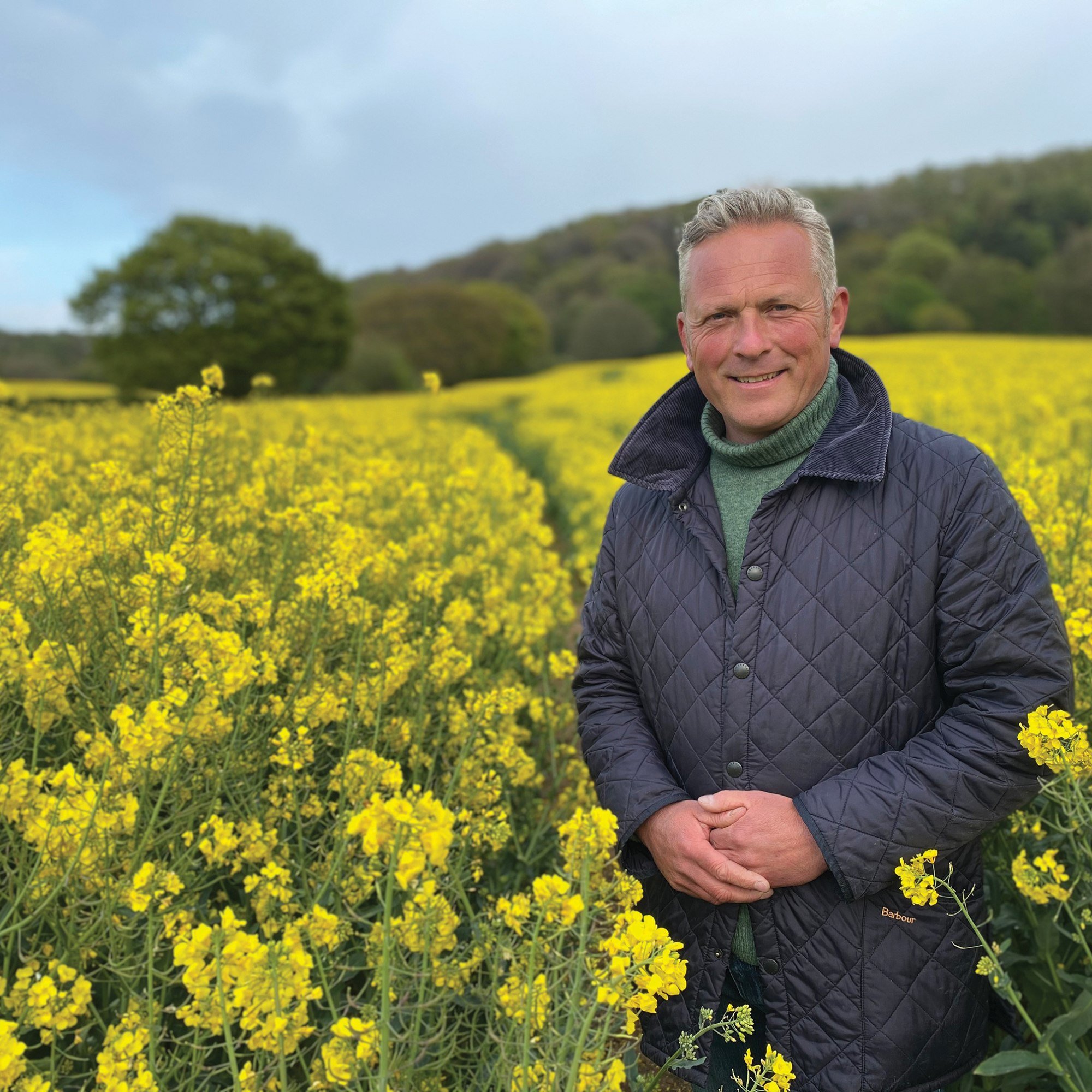
The fire is nature’s TV
Jules Hudson is a television presenter, author and archaeologist with a passion for architecture, landscape and history. RUPERT BATES reports
A chat with Jules Hudson is nothing if not varied, as we touch on not just the hardy perennials of fire, food and outdoor living, but ancient Roman artefacts, artisan blacksmiths and the Duke of Wellington.
Jules Hudson is best-known as presenter of the BBC series Escape to the Country, helping families find their pastoral paradise. Jules is a familiar face on our televisions where he also presents Channel 5’s This Week on the Farm and will be co-hosting the return of Cash in the Attic on Channel 5.
The television work is front of house profile, which gets you recognised in the pubs and beyond, but he has been a rural champion all his life, passionate about country living in all its triumphs and disasters. If Escape to the Country didn’t exist, you suspect he’d still be out there sharing and seeking knowledge and probably wielding a hammer to help knock down a wall, while poring over extension plans. No matter how much he has learnt along the way, Jules the polymath is ever curious, always inquiring.
This is a man with property as a vocation and if anyone has read the runes – not to mention the ruins as an archaeologist – when it comes to the explosion of interest in the outdoor space, it is him.
“One of the great joys of any rural experience is access to open fire. We have a visceral connection to that primeval provider of heat, light and food.”
“The fire is nature’s TV as you look into its glowing embers as darkness falls, the temperature dropping but warmed by the flames. You are in touch with a timeless moment, shared by humans around the world through the ages. That is why we are social creatures, gathering and reflecting around focal points.”
We should be doing exactly that, gathered round the firepit at his Herefordshire home shooting the breeze and reading the flames over a glass of something suitable. But busy diaries mean it is a video call. Yet such is his ability to evoke the pastoral spirit, the conversation is never anaesthetised by the Zoom lens.
Jules wants to share his slice of rural England bordering Wales in the lee of the Black Mountains.
He bought his farmhouse 10 years ago and after a negotiation with the church, the family now has five acres of land with the property.
“Ever since I started Escape to the Country 16 years ago, I have seen numerous buyers wanting to develop glamping sites and I started imagining our own little glamping business. I live in a part of the world worth sharing, but also the chance to earn an additional income.”
The result is a shepherd’s hut, from Worcestershire company Riverside, to accommodate a couple, together with what he has named the Trough.
This is not some primitive, porcine feeder which even the hardiest outdoorsman might scoff at, but an ancillary building for more eating and social space for the guests and fired by a Go Eco Adventurer 5 wood-burning stove.
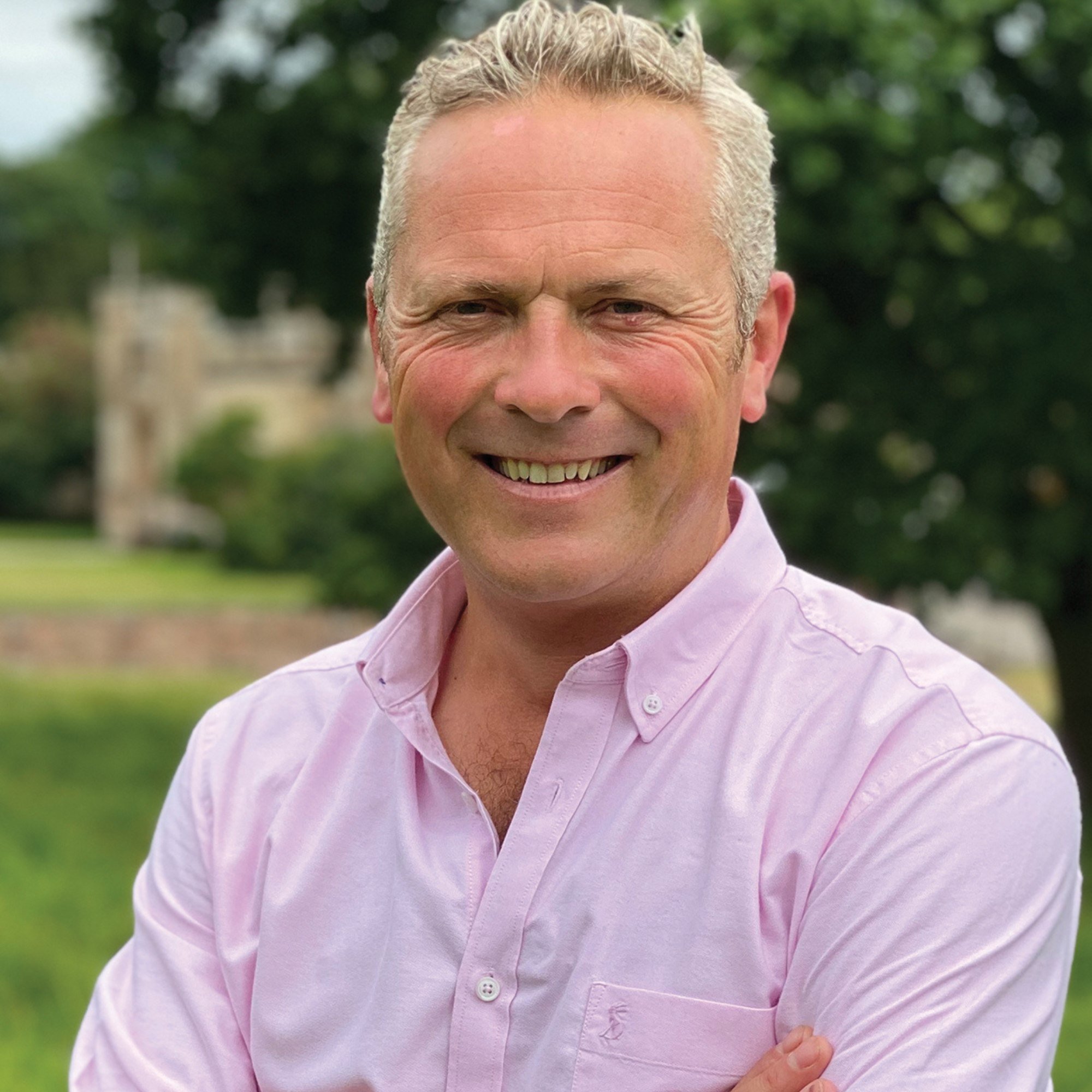
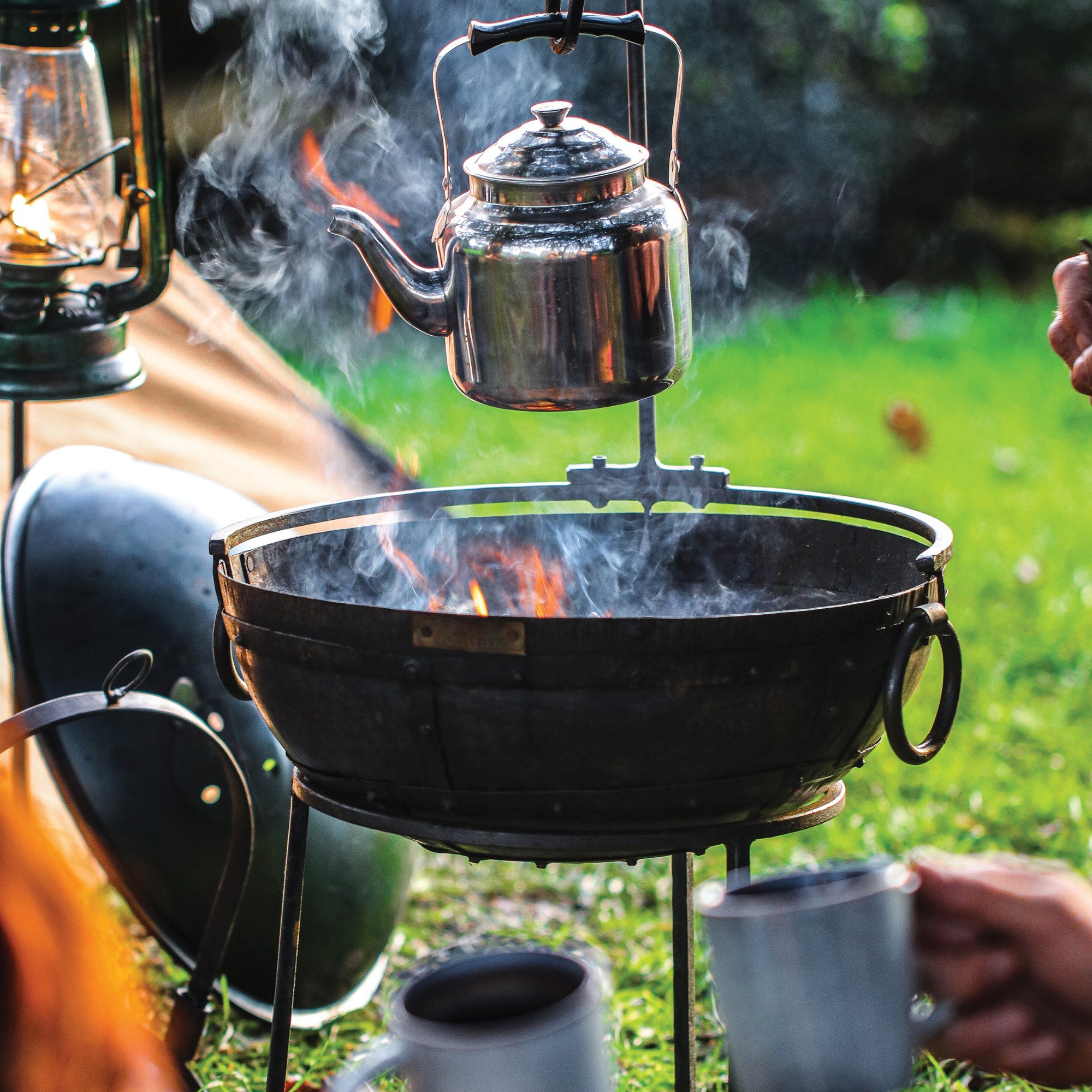
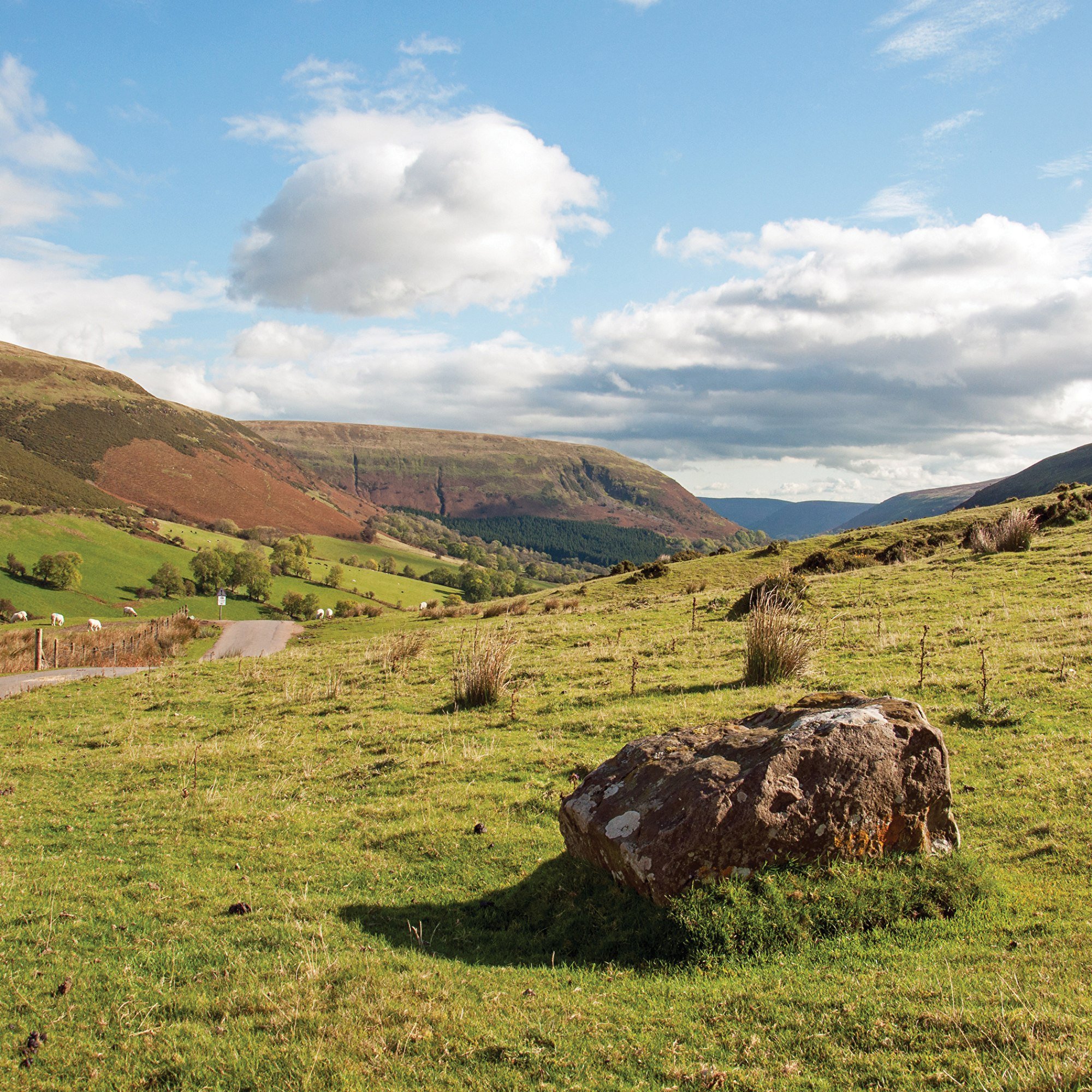
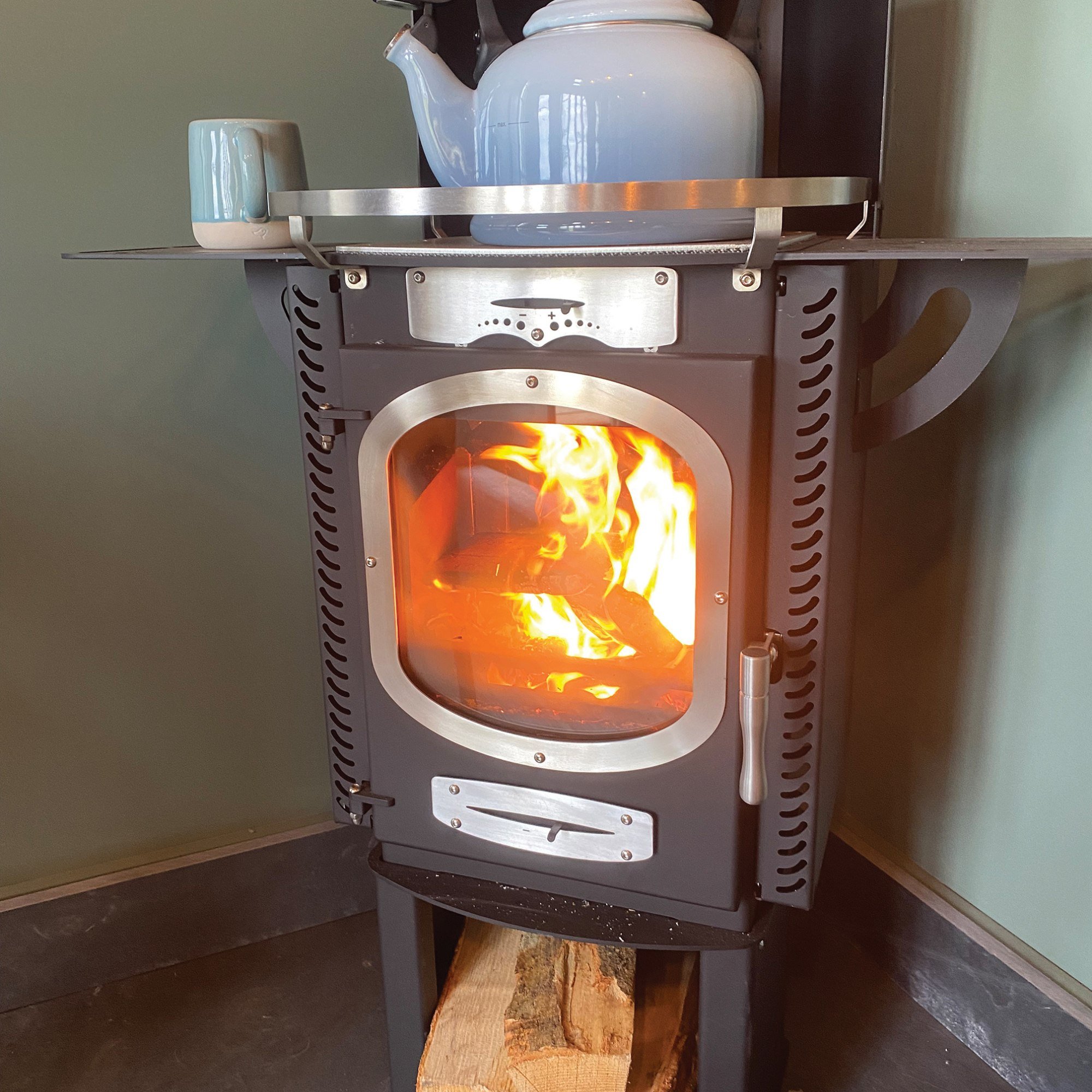
“There will be a firepit in line of sight to both the shepherd’s hut and the trough and pointing towards the sunset over the Black Mountains. It has all taken longer than planned, especially with delays in material supplies, but we hope we’ve created something special and indulgent – rustic but boutique, isolated but accessible.”
He imagines guests purchasing books at the Hay Festival at nearby Hay-on-Wye and taking them to read in the trough, while food cooks on the firepit.
He has thought about every aspect – literally. “The surroundings here are different, the metronome of the day different, staying in tune with the seasons.”
At home Jules seeks “to iron out seasonal wrinkles”. The end of summer should not be the siren call to pack up the garden in the shed and stop cutting the grass.
“There is no need to go through that untidy winter stage. Keep your garden open and inviting all year round.”
Lockdowns changed the language too, with the garden now part of a more diverse outdoor space, with staring at four walls forcing many to start knocking them down or through to bring the inside out, blurring the boundaries between house and garden.
“I look at some lovely country houses and there has been no attention to the garden. You can’t separate the two; they should complement each other. You’d wouldn’t spend half a million pounds on a painting and not expect it in a frame.”
As well as authoring the Escape to the Country handbook, Jules wrote the book Walled Gardens. “A walled garden is the perfect space for an outdoor kitchen. It gives you the frame, something to build against, the privacy, the warmth and the wind break.”
Archaeology and architecture have informed and inspired him throughout his life and he urges us to tap into the creativity in and around us to design great spaces inside and out. “And it doesn’t have to cost the earth.”
Born and raised in Essex, Jules first ‘escaped to the country’ in his mid-20s with an archaeology degree in his pocket and having just started out in television. While friends were living it up in London, he was heading to Wales at weekends after work having bought a derelict cottage in the Cambrian mountains.
“I have always had a passion for renovation and building and fixing things. Rural life can be quite raw and you need to be practical, however utterly beautiful the landscape.”
His fascination with historic buildings started as a child and evolved as a student. “As an archaeologist you have to understand how something was built to understand how it fell down – the process of history and decay and how buildings and landscape dictate the story.”
“Historical context has been my handrail through life. I like to know where we were, where we are and some clue as to where we’re going.”
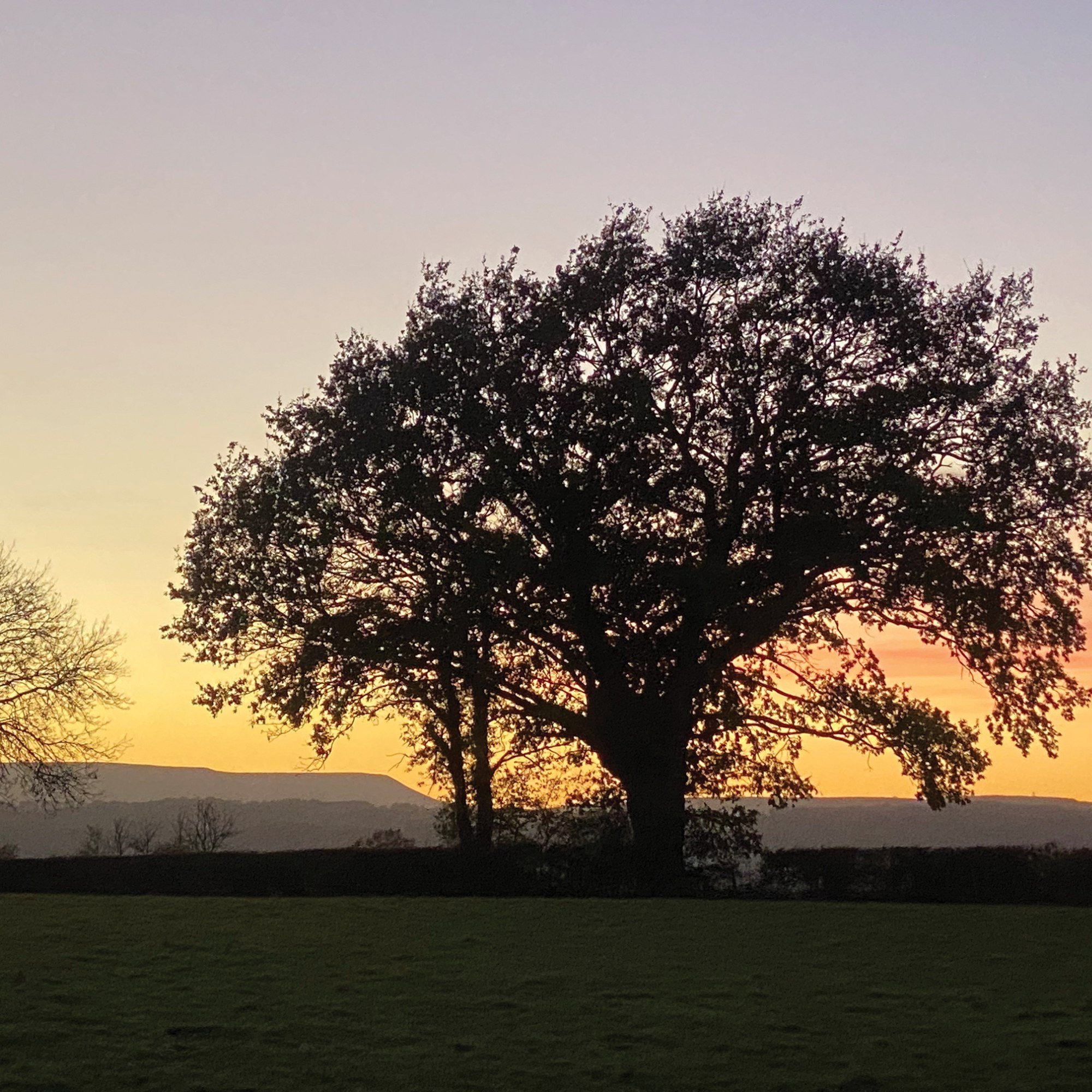

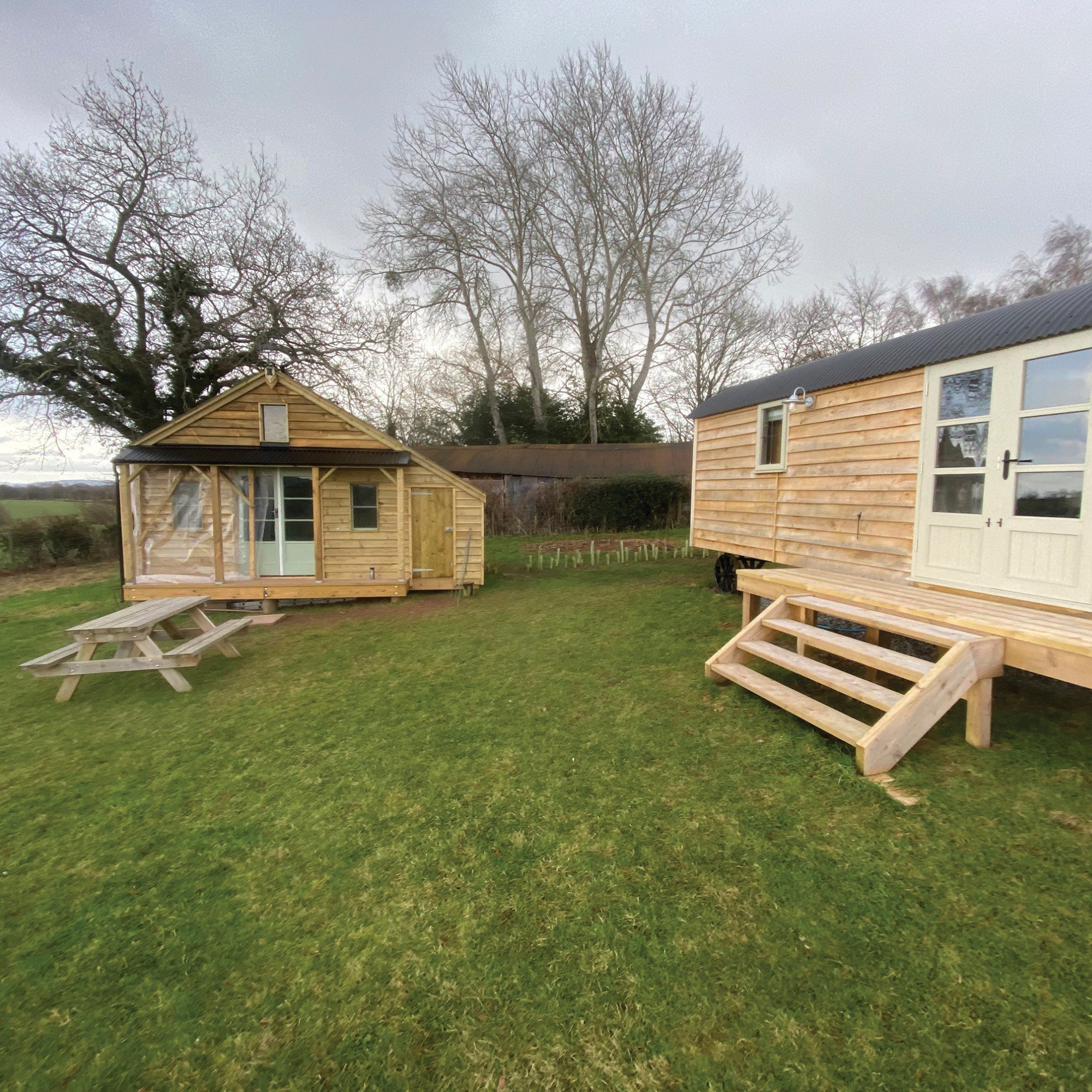
We return to fire; not just as a source of cooking, heat and light, but as charred history. “Some of the most important archaeological information comes from the burnt remains left behind,” citing the discovery of the Vindolanda tablets, pieces of wood used as writing paper by Roman soldiers.
“Fire does not always destroy; it can often preserve the most incisive bits of information. Fire and the human experience are absolutely linked.”
A keen horseman and military historian, he returns to the theme of reading a landscape, not just looking at it, and recounts how the Duke of Wellington, out riding with friends, loved to guess what lay over the horizon. He was always right and a skill that helped him win the Battle of Assaye in India, as with seemingly no way to cross a river, the duke saw two columns of smoke and knew there must be a village either side of the bank and therefore a ford for his army to cross.
We move from generals to artisans, be they blacksmiths or builders, and the role Jules believes they can play in outdoor cooking and living, fashioning British made tools, instruments and furniture to stand the test of time – practical, durable, local and beautiful, pieces of garden architecture “that reflect our climate, culture and tastes, thinking about form, shape and material.”
Returning to his glamping site at home in Herefordshire, he jokes about trying to keep family and friends from booking up the shepherd’s hut at mates’ rates.
I suspect a bigger distraction will be guests inviting Jules to join them beside the fire – nature’s TV – for tales of houses, history, architecture and fieldcraft.



